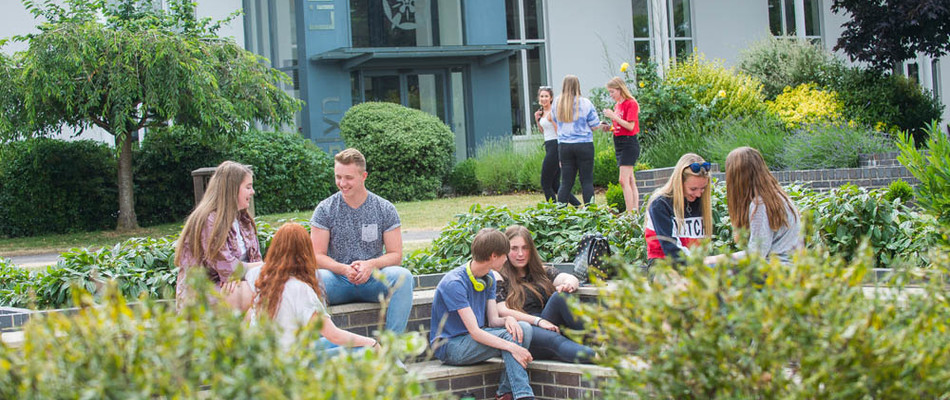Communicating your teaching and learning culture with parents
Back
This blog explores the why and the how of explicitly explaining your teaching and learning approach to parents and is based upon my experiences as a senior leader and the research I undertook as part of co-writing (alongside Stuart Kime) the book What every parent should know about education. The two questions this blog will try to answer are:
- Why is it important that we do talk to parents about teaching and learning?
- How should colleges explain teaching and learning approaches to parents in a way that leads to the enhancement of learning?
Imagine the following scenario, one that many colleges like mine have encountered: the college has decided it wants to bring in a new assessment policy that reduces the amount of marking and grades by replacing some marked work with high quality group feedback instead.
From a parent’s perspective, it looks like the college is doing less marking, and this could easily be misinterpreted by parents as the college reducing the amount of assessment and therefore the effectiveness of learning. In this scenario, why would we want to explain this change to parents, and how does our college effectively communicate this change in the teaching and learning culture to parents?
The Why
Every college communicates with parents, sometimes to the point where parents can become selective about what they read and we lose impact. However, there is a difference between colleges generally communicating with parents about practical things like college events and general updates, and colleges specifically engaging with parents on the issue of teaching and learning. Parents are vital stakeholders, and whilst we do not expect them to become experts in assessment and learning, it is helpful to their child and will deepen their relationship with the college if we help them to understand our approaches to teaching and learning.
- Education is changing and we need to bring parents with us on that journey.
The recent Ofsted frameworks have formalised many strands of evidence-based practice, and they introduce ideas that resonate with our current practice (e.g. an emphasis on intentional curriculum choices, retrieval practice) but which may be new to parents, or which differ from their own personal experience of what education should be.
- Parents are stakeholders and it is only reasonable that we seek to help them understand what we do in our classrooms.
If you want parents to understand and support your approach, they need to understand your key teaching and learning messages to students. This means sharing the why, and crucially the how, of your teaching and learning approach. The culture of your college can better extend to students even when they are working at home if parents understand and invest in what you are doing. Informed parents can help students make better decisions about their learning.
The How
There is no magic bullet for communicating teaching and learning to parents. It is bound by the same constraints that any messaging home will encounter. In this section I will lay out a few basic tools for engaging parents that in my experience make it easier to get your message across effectively.
Start with the why, then move on to the how
If you simply tell parents you’re going to move to group feedback for some assignments because it is better, they will rightly ask you to prove it, especially if they already have a belief from their own interactions with education that more marking = better results. Start by crafting an easy-to understand explanation of why you are making the change that links to your wider culture and values.
Condense the why of your approach to a simple message and make sure parents hear it all the time
Parents have very limited bandwidth for messages and a lot of noise distracting them from messages you wish to share with them. Keep the explanation simple and clear and don't get lost in the detail. The easiest way to do this is to find slogans or phrases which encapsulate this idea and then use and explain them repeatedly.
So that could mean messages such as:
- We treat learning as a process, not an event.
- The most important thing about feedback is what you do with it.
- Grades themselves don’t make students better, but feedback and deliberate, conscious practice does.
- Remembering is a skill that must be practiced.
Provide practical examples of what the how looks like both in the classroom and at home
Just because a parent understands that the college is focusing on the impact of feedback, they may not understand what that actually means in real terms for their child. Explain both what this means teachers will be doing in the classroom with their child and also what they could do to support it at home. Provide examples relevant to your context and short guides for parents that clarify the how.
The message needs to be lived and be visible throughout the college
Whilst direct, effective communication of the message is important in the first instance, you cannot get across a teaching and learning strategy in a single parents’ evening or presentation. It has to be the lived culture in the classroom, and the messages must be spoken by students and teachers, so that parents become familiar with, confident in, and convinced by the change.
Summary
- The focus on evidence-based approaches in most colleges’ teaching and learning means that it is important that educators engage parents in the how and the why of their model of teaching and learning.
- Effective communication focuses on combining a simple why with a more detailed how.
- Establish your messages ahead of any changes and zoom in on the how to help parents feel part of the journey.
Chris Atherton is principal at Sir John Deane's Sixth Form College in Cheshire.

